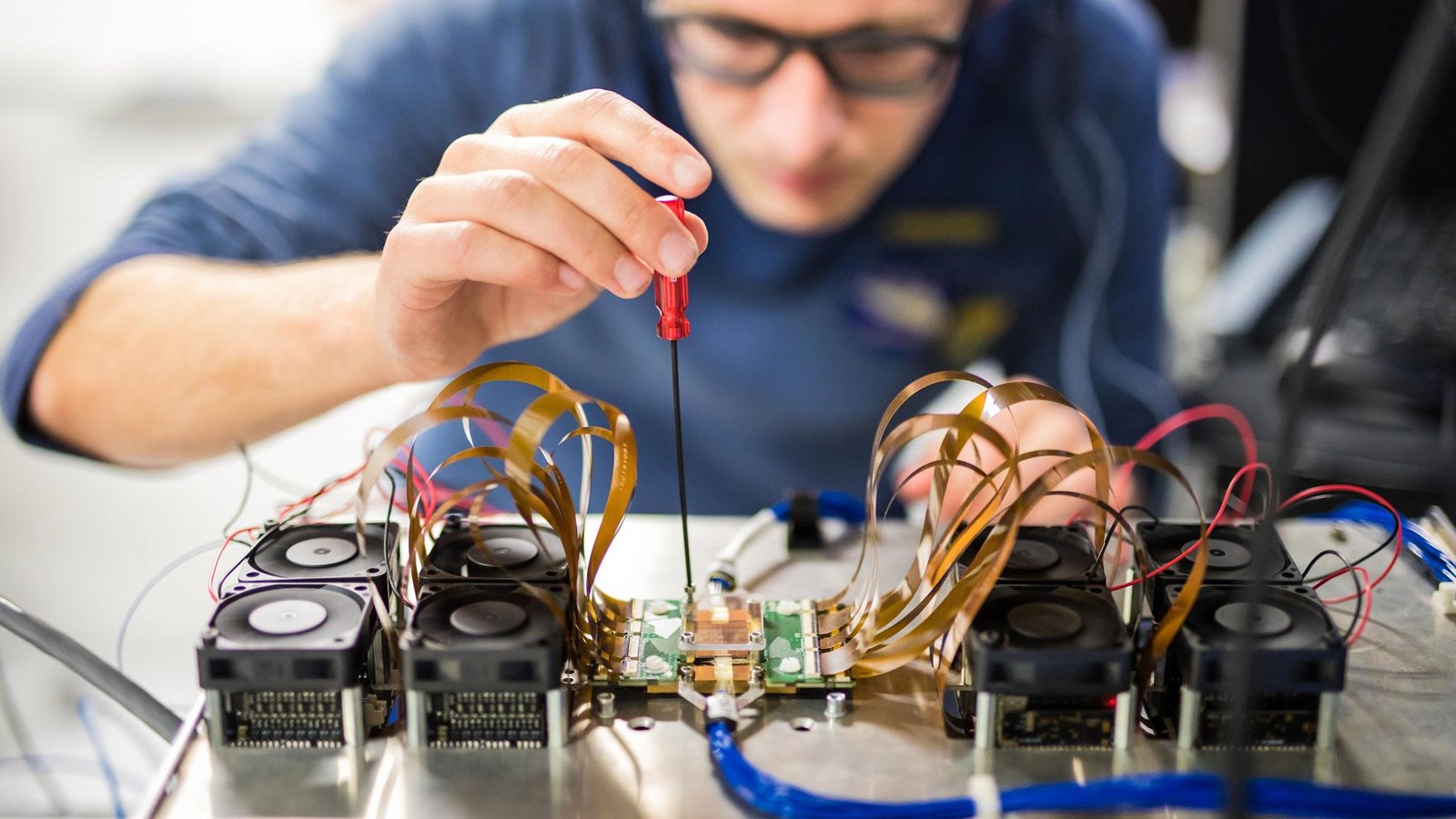Computing with light

- The start-up QuiX Quantum will develop prototype photonic quantum computers over the next four years.
- Photonic quantum computers work with light particles that form qubits.
- QuiX Quantum uses facilities and laboratories at the DLR innovation centre in Ulm.
- Focus: Quantum technology, quantum computing, digitalisation
Turning light particles into arithmetic building blocks offers great potential for building quantum computers. However, quantum processors based on light particles (photons) are less mature than other platforms. For the purpose of driving research and developing the potential of photonic systems, the German Aerospace Center (Deutsches Zentrum für Luft- und Raumfahrt; DLR) has awarded a contract worth 14 million euros to start-up QuiX Quantum, which will develop prototype photonic quantum computers over the next four years. The contract has been awarded as part of the DLR Quantum Computing Initiative.
"We are pursuing a range of technological approaches, which we can then evaluate and apply. This is the only way of researching the advantages and disadvantages of different architectures for quantum computers. The strong scientific basis for quantum technologies will be strengthened in industry and research. The initiative targets existing start-ups and the founding of new ones," says Anke Kaysser-Pyzalla, Chair of the DLR Executive Board.
System with at least 64 qubits planned
Qubits based on photons have the advantage that they can be manipulated using tried and tested optical methods. These qubits – the arithmetic building blocks – are also thought to be easily scalable, so their number, and thus their computing power, can be significantly increased. The light particles for the photonic platforms can be produced by a laser. The greatest challenge presented by photonic systems is that photons are comparatively elusive and do not interact directly with each other. Quantum computers cannot function without interaction or entanglement.
Creating quantum gates to overcome this hurdle requires new, innovative concepts. The photonic quantum computer in this project works differently from most quantum computers, such as those based on ions or NV centres. Instead of running quantum gates in a circuit-like manner, calculations are conducted through a series of measurements. This process is called measurement-based quantum computing.
An eight-qubit quantum processor should be ready within three years. The researchers are aiming to achieve a system with at least 64 qubits by the end of the project. QuiX Quantum's photonic quantum computer processes information in an entangled quantum state made up of many photons. "The entanglement of the photons occurs in the waveguides of our processors. The waveguides guide the light through the processor in the same way as the electrical conductor paths in a conventional processor. With active control elements, we can allow photons to interact (interfere) or specifically change their phase. Adaptive measurements can be made on the generated quantum state with the help of single photon detectors. This is how qubits are encoded, processed and measured," explains Stefan Hengesbach of QuiX Quantum. The company is also supplied by Münster-based start-up Pixel Photonics. QuiX Quantum has already developed a photonic processor in the form of a reprogrammable interferometer. As part of the contract, QuiX Quantum will provide DLR with a prototype of this processor, complete with 12 input channels next year. This will allow researchers to acquire some initial experience in the use of a photonic quantum computer.
DLR institutes and QuiX Quantum jointly developing applications
Over the coming weeks, QuiX Quantum employees will move into the DLR innovation centre in Ulm. The companies work in close proximity to the DLR institutes there and those at the similar innovation centre in Hamburg "By bringing QuiX Quantum on board, we are integrating another company into our Quantum Computing Initiative and developing the range of technologies at our disposal, in this case specifically for photonic quantum computing. Another player in the quantum computing ecosystem will assist us in advancing with this technology at our innovation centre in Ulm," says Robert Axmann, Head of the DLR Quantum Computing Initiative. The photonic platform planned here will pave the way for universal computing operations, which means that the prototype quantum computer is not limited to solving specific problems. The DLR institutes will develop applications on this system in collaboration with the start-up.
DLR has been granted funding by the Federal Ministry for Economic Affairs and Climate Action (BMWK), enabling it to award large-scale contracts to companies through calls for tender. DLR is also bringing its own expertise and experience to bear on the research and development work.
Rapid computations with quantum bits
Quantum computers are an important technology for the future. They can perform calculations and simulations in specific fields of application much faster than conventional supercomputers. Their use is possible, for example, in the transport and energy sectors, but also in fundamental research or even in satellite operations. Quantum computers work on the basis of quantum physics. Their quantum bits (qubits) can not only assume the states 0 and 1, but also intermediate values, distinguishing then from conventional computers and allowing them to be so powerful. At DLR, several institutes are already working with quantum technologies. There is also a great need at DLR to conduct research on and with quantum computers in the future.
QuiX Quantum
The start-up QuiX Quantum was founded in January 2019 and specialises in photonic quantum technology. The company has been offering photonic quantum processors since late 2020. QuiX Quantum works with scalable plug-and-play quantum computing solutions.
